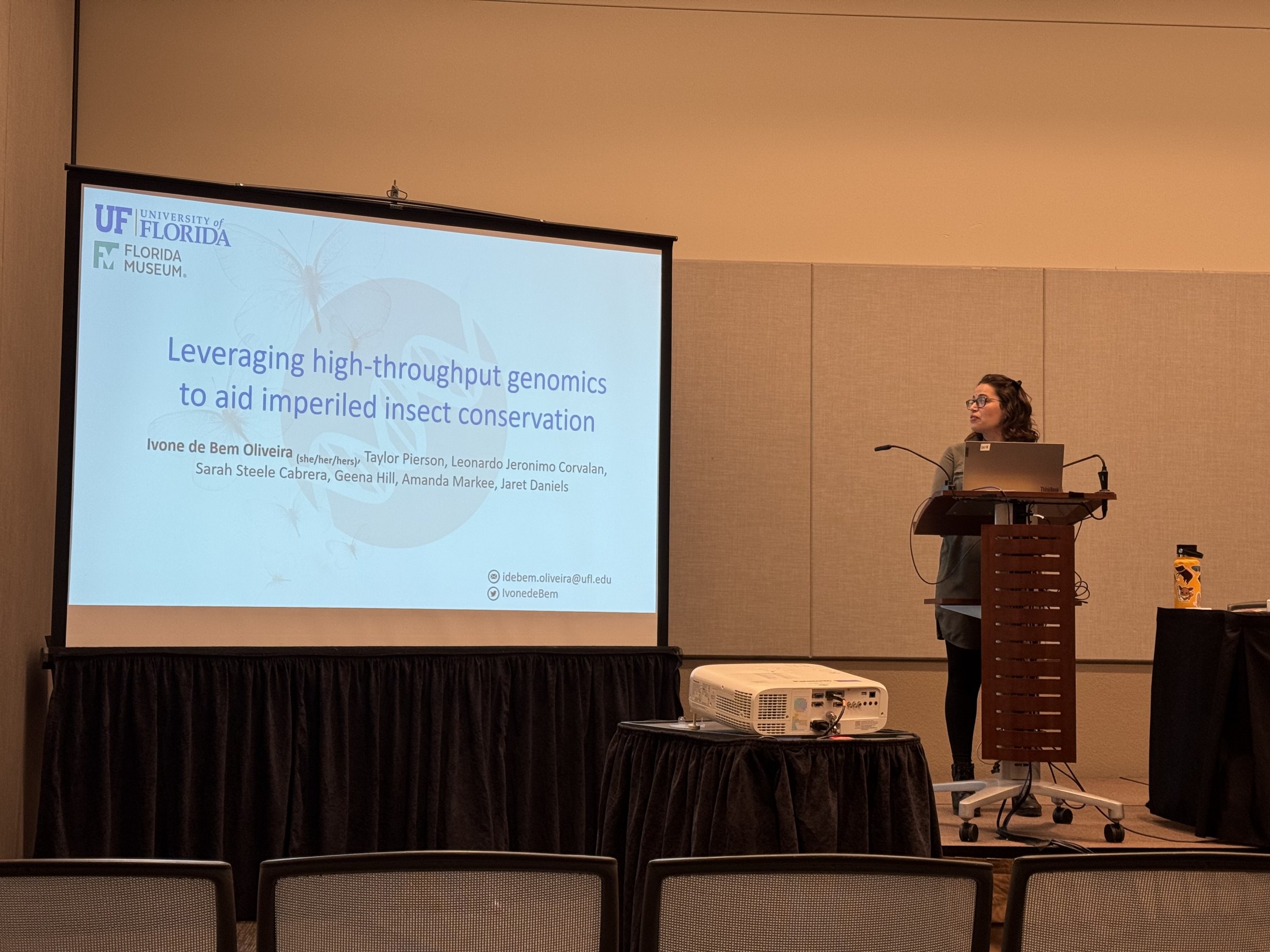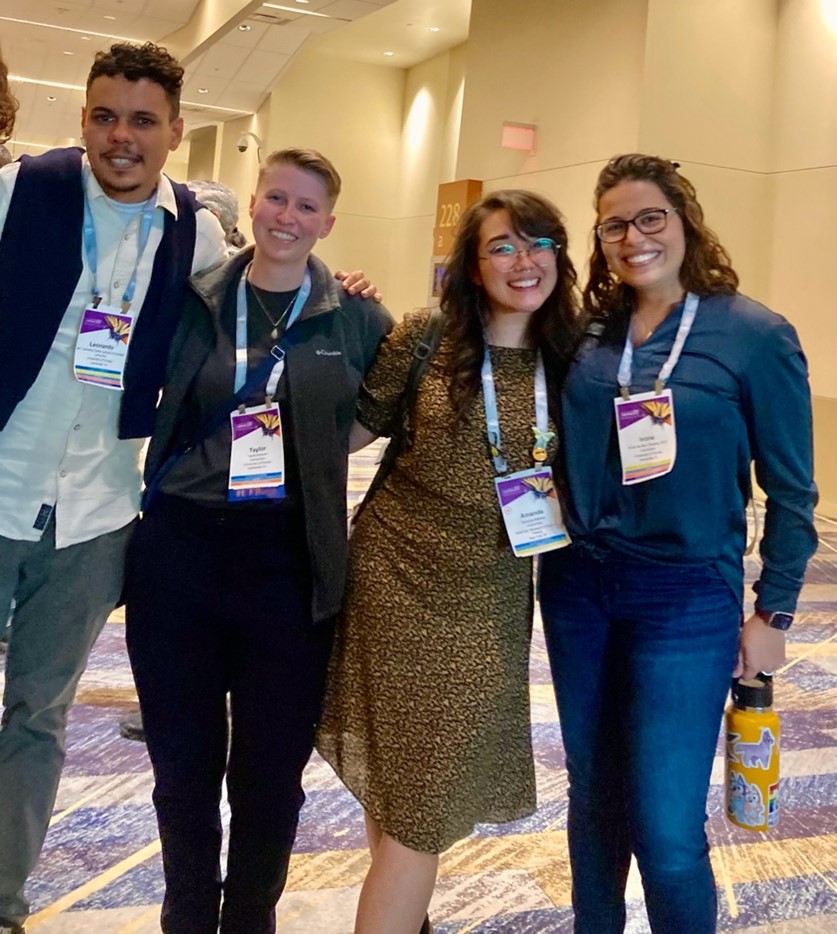I recently had the privilege of presenting at my first insect-related conference, a pivotal step in my transition from agricultural research to conservation science. Participating at the Entomological Society of America annual meeting (ESA) in Arizona was enriching and inspiring. It offered me the opportunity to share my work, support mentees, and network.

My ESA presentation focused on the advances we obtained at the Daniels lab in the last year and a half, where we developed a cost-effective pipeline to integrate high-throughput genomics to aid imperiled insect conservation (Picture 1). In this talk, I presented the results for three endangered butterflies, Frosted Elfin, Duke’s skipper, and Palatka skipper (Callophrys irus, Euphyes dukesi calhouni, and Euphyes pilatka klotosi, respectively). Species experiencing alarming population declines and considered for listing under the U.S. Endangered Species Act. I showcased how genetic diversity, population genomics, genome assembly, and mitochondrial genome data can be combined to inform conservation management actions and how this cost-effective protocol, using non-lethal sampling for rapid assessment and species monitoring, can be successfully applied to help conservation in any insect species. The response to my presentation was very positive. Many attendees expressed interest in how these approaches could be applied to other insect species, and researchers asked questions about similar challenges they’ve been facing.
A personal highlight was witnessing three of my mentees participate in the student competition. Seeing their hard work and dedication recognized was gratifying, and I felt immense pride in supporting them during this important milestone in their academic journeys (Picture 2).

My journey into conservation began with volunteering in Dr. Jaret Daniels’ lab at the Florida Museum of Natural History, where I discovered a passion for applying my skills to biodiversity conservation. Attending this conference reaffirmed my commitment to using these skills to protect imperiled species and support efforts to safeguard biodiversity and insect pollinators critical to ecosystems and food security.
I am thankful for the support from the Florida Museum Department of Natural History Travel Awards and for the support from the Daniels Lab, which allowed me to participate in such an invaluable experience for my professional growth. Thanks to the support, I was able to attend the conference, connect with leading experts, exchange ideas, and explore opportunities for collaboration that will undoubtedly enhance my ongoing and future work.
Ivone de Bem Oliveira is a postdoctoral researcher at the Florida Museum of Natural History, advised by Dr. Jaret Daniels, Curator of Lepidoptera.
The 2024 Fall Student Travel Awards are supported by the FLMNH Department of Natural History, including funds from the Louis C. and Jane Gapenski Endowed Fellowship and the B.J. and Eve Wilder Endowment. If you would like to help support this fund for future student awards, please go to:
Louis C. and Jane Gapenski Endowed Fellowship
B.J. and Eve Wilder Endowment